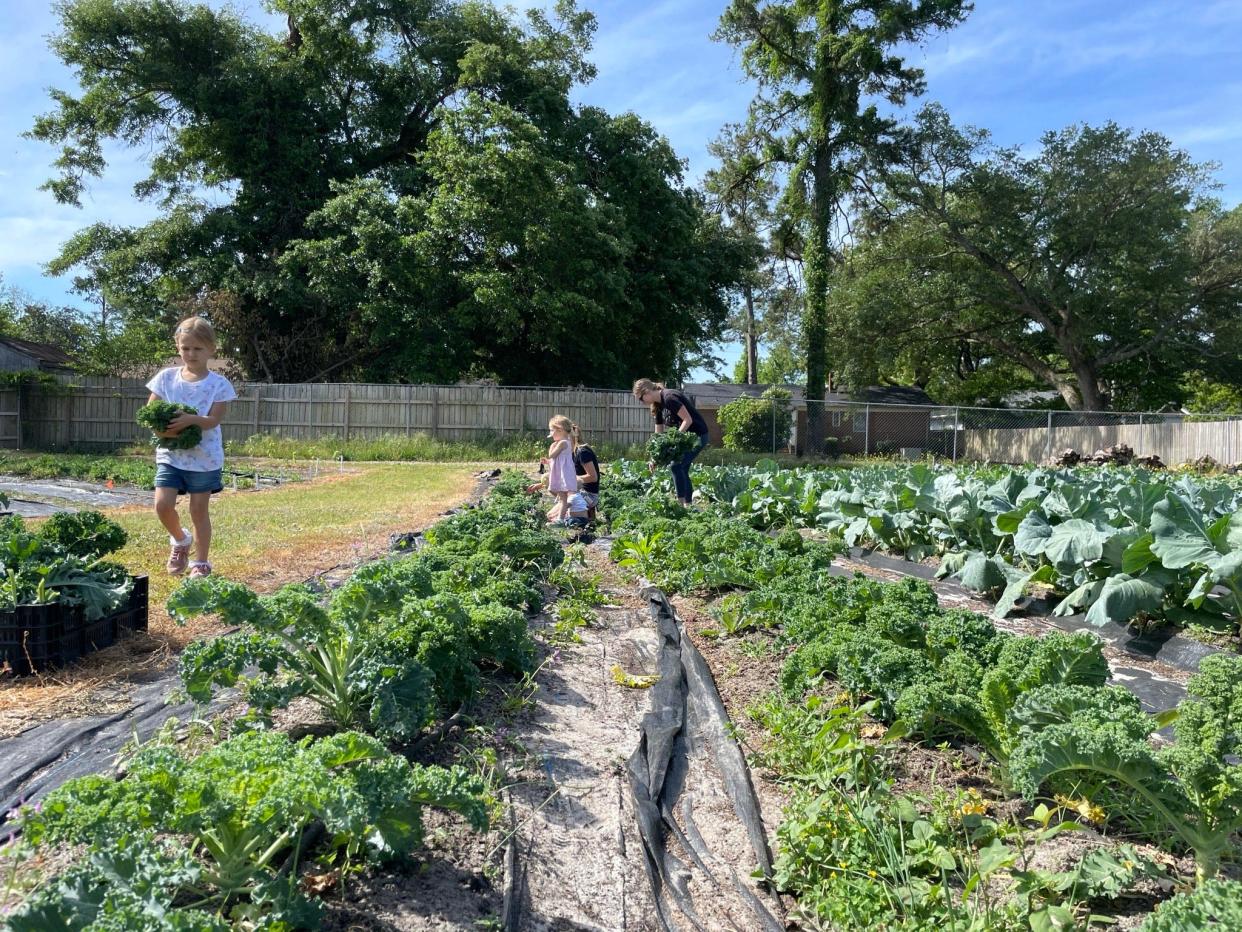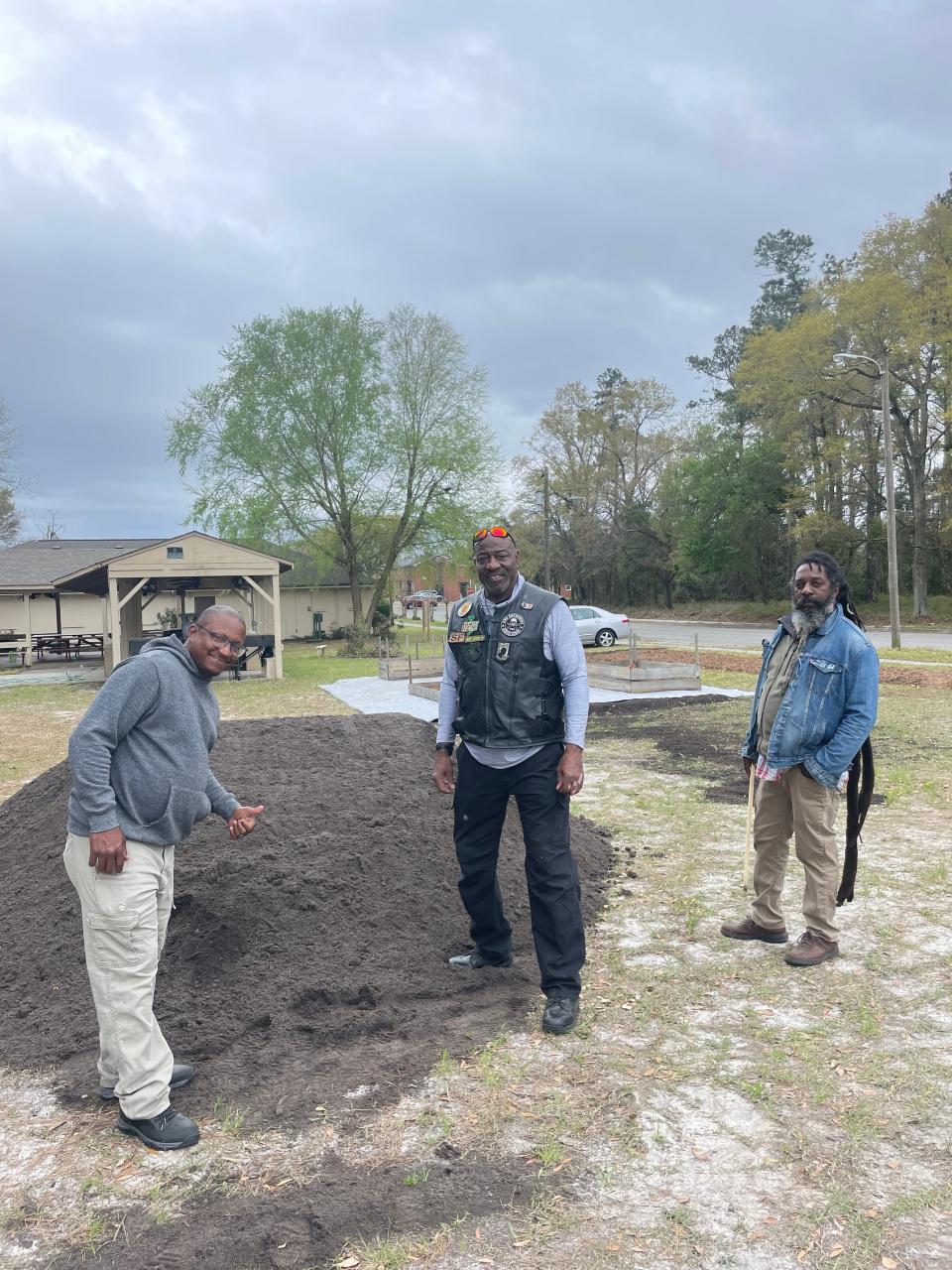Sustainable sanctuaries: Urban gardening at places of worship to build resilience

This April plays host to a rare occurrence which happens only once every 33 years or so; when Passover, Easter, and Ramadan– the holy holidays of Judaism, Christianity, and Islam, respectively– fall within the same month. Leaders within these communities are using this alignment as an opportunity to harbor harmony between the Abrahamic Religions. The American Jewish Committee for instance stated on social media “As Passover, Easter, and Ramadan converge…we pray for peace and tranquility in Israel, in the United States, and around the world.”
Here in Wilmington, there is a great opportunity in-line with a nationwide trend for not just peace and tranquility but for collaboration and charity between churches, synagogues, and mosques – and their surrounding communities – through the creation of a food security network.
As of 2019, USDA designated large sections of the Northside and Southside of downtown Wilmington as “food deserts,” which is determined based on low levels of income and access to healthy food. On the bright side, there’s now an affordable market coming to the Southside as part of the new Food Bank headquarters set to be completed by the first half of next year and Northside Food Co-op should have their grocery store on Ninth and Fanning streets soon after that.
More: Northside grocery store closer to reality with funding boost from city, county. What's next?
There is a movement happening in the meantime, however, within these districts; and it’s stemming from the religious and horticultural communities. Downtown might lack grocery stores but certainly does not lack places of worship — as there are over 60. This includes synagogues, Islamic centers, and Black and white churches of the many denominations of Christianity. Such worship centers often have resources which are rare in these communities such as large facilities for gathering, undeveloped property to start a sizable garden, a congregation for a volunteer base to begin and look after such an enterprise, commercial kitchens for the preparation of food, and even transportation for pick-ups and deliveries. They are also exempt from property taxes and automatically qualify as 501(c)(3)’s.

Perhaps more important than being charitable organizations by federal law’s definition, Abrahamic Religions– like many others across the globe– are charitable by nature of their Holy Laws. In Christianity it stems from the teachings of Jesus & Paul to honor and look after the less fortunate, in Judaism it is known as “Tzedakah,” and in Islam “Zakat” — the third of Islam’s five pillars. Starting gardens at places of worship is like growing tithes. It wastes not resources possessed while connecting the congregation to itself, to the earth, and to its surrounding community – whether that community is in need of food or simply communion. With church numbers dwindling from COVID and all else, it can also be a creative and wholesome way to attract new members.
More: 'More than just saving souls': Castle Hayne church to build affordable housing near sanctuary
Two churches downtown have already begun this mission: First Pentecostal Holiness Church on the Northside and Hope For All Nations Baptist Church on the Southside. In the case of the first, Pastor Paul Evans teamed up with David Brenner and Delores Williams of Community Enrichment Initiatives (CEI) nearly three years ago now to start Willowdale Urban Farm on 2 acres of land at 30th & Chestnut streets which is in close proximity to the Creekwood South public housing community. On the other side of town and just this year, Pastor James Jamison has teamed up with Feast Down East and New Hanover County Extension to start the Hope (For All Nations) Community Garden on 1 acre of land beside an outdoor kitchen and covered picnic area situated between two public housing communities: Hillcrest and Houston Moore. Inspired by the Black Church Food Security Network which started in Baltimore, Maryland and has now spread across the East Coast, these groups envision a local network of gardens which can empower a disenfranchised community to take food production and distribution into their own hands; leading to healthy food in their stomachs and even money in their pockets – not to mention the environmental benefits of urban agriculture like improvements in soil and water quality, stormwater diversion and absorption, decreasing food miles and waste, increasing biodiversity, and cooling the Urban Heat Island Effect.
Not every place of worship downtown will have prime properties for large impacts like these two, of course; but if each one farmed an average of just .1 acres, that would still be a total of 6 acres of food production– which, based on the most up-to-date methods and calculations, could produce over 150 tons of food annually. It really seems like a win-win for these institutions and their communities.

Blair Houtz is a project manager with Feast Down East, partnering with the N.C. Cooperative Extension - New Hanover County Center to advise and support urban food access and production, 910-798-7660. Blair can be reached at blair@feastdowneast.org.
This article originally appeared on Wilmington StarNews: Sustainable sanctuaries: Helps fight food apartheid in Wilmington

